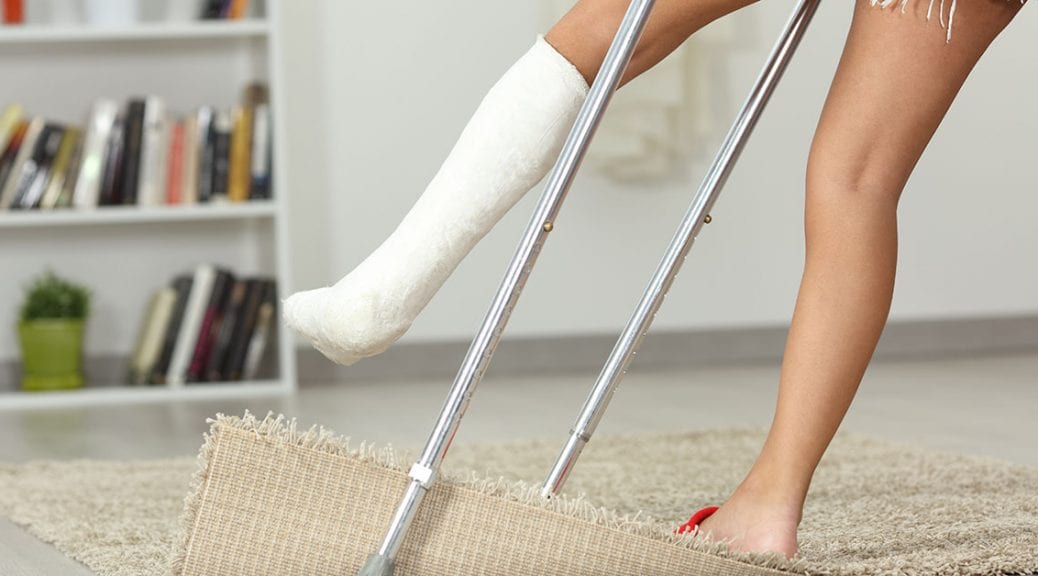Tripping and falling can cause major problems, especially for older people. Unfortunately tripping and falling is not uncommon among a population that may have problems with mobility, vision, or coordination. Even though trip-and-fall fractures are most common in older people, they can happen to people of all ages. Because fractures can lead to long-lasting problems for some people, we have come up with 10 ways you can prevent falls and fractures.
The 10 Ways to Prevent Falls & Fractures
- Stay physically active. Plan an exercise program that is right for you. Regular exercise improves muscles and makes you stronger. It also helps keep your joints, tendons, and ligaments flexible. Mild weight-bearing activities, such as walking or climbing stairs, may slow bone loss from osteoporosis.
- Have your eyes and hearing tested. Even small changes in sight and hearing may cause you to fall. When you get new eyeglasses or contact lenses, take time to get used to them. Always wear your glasses or contacts when you need them If you have a hearing aid, be sure it fits well and wear it.
- Find out about the side effects of any medicine you take. If a drug makes you sleepy or dizzy, tell your doctor or pharmacist.
- Get enough sleep. If you are sleepy, you are more likely to fall.
- Limit the amount of alcohol you drink. Even a small amount of alcohol can affect your balance and reflexes. Studies show that the rate of hip fractures in older adults increases with alcohol use.
- Stand up slowly. Getting up too quickly can cause your blood pressure to drop. That can make you feel wobbly. Get your blood pressure checked when lying and standing.
- Use an assistive device if you need help feeling steady when you walk. Appropriate use of canes and walkers can prevent falls. If your doctor tells you to use a cane or walker, make sure it is the right size for you and the wheels roll smoothly. This is important when you’re walking in areas you don’t know well or where the walkways are uneven. A physical or occupational therapist can help you decide which devices might be helpful and teach you how to use them safely.
- Be very careful when walking on wet or icy surfaces. They can be very slippery! Try to have sand or salt spread on icy areas by your front or back door.
- Wear non-skid, rubber-soled, low-heeled shoes, or lace-up shoes with non-skid soles that fully support your feet. It is important that the soles are not too thin or too thick. Don’t walk on stairs or floors in socks or in shoes and slippers with smooth soles.
- Always tell your doctor if you have fallen since your last checkup, even if you aren’t hurt when you fall. A fall can alert your doctor to a new medical problem or problems with your medications or eyesight that can be corrected. Your doctor may suggest physical therapy, a walking aid, or other steps to help prevent future falls.
Consult an Orthopedic Specialist
The team at Paris Orthopedics and Sports Medicine is dedicated to helping our patients recover from a wide range of orthopedic conditions. Our services include general orthopedic medicine, joint replacement, sports injury treatment, and osteoporosis treatments at our bone health clinic. If you have questions about the best how to prevent falls and fractures, call (903) 737-0000 to make an appointment.


